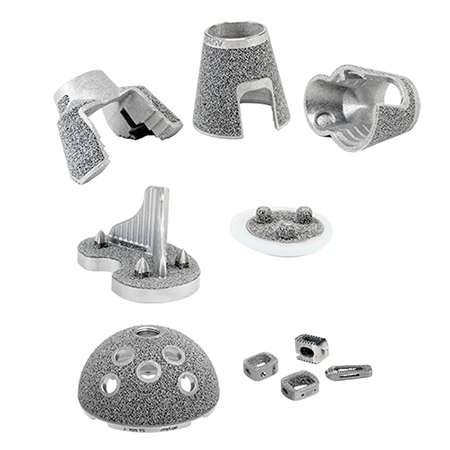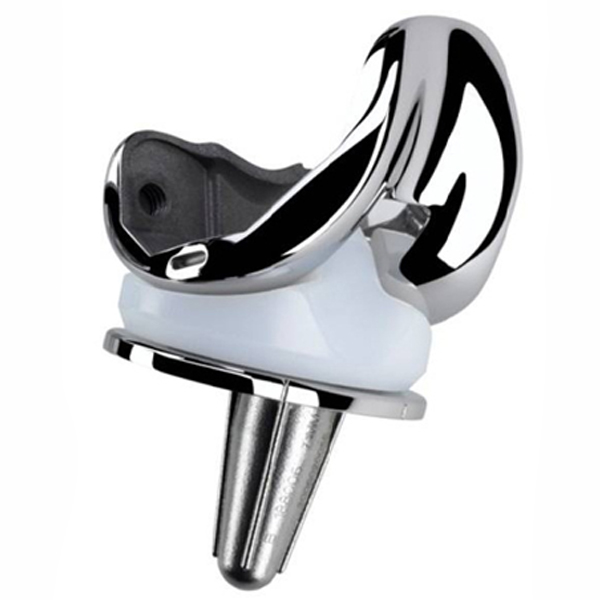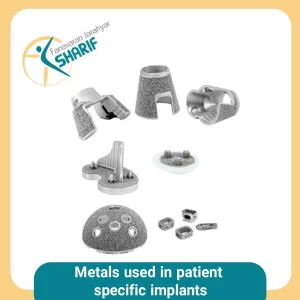Metal alloys play an essential role in the manufacture of customized prostheses. Metals are used in making customized prostheses due to their excellent strength, durability, and biocompatibility. According to the location of the disease, force intensity, and other clinical and mechanical factors, the required metal can be selected. Various metals are used to make customized prostheses, including titanium, cobalt chrome alloy, and stainless steel.
Titanium
Titanium is widely used in orthopedic implants and prostheses due to its excellent biocompatibility, remarkable corrosion resistance, and strength. This metal has the ability to grow bone tissue in a customized prosthesis. Titanium is biologically and chemically inert and has an excellent strength-to-density ratio. In addition, it can withstand high forces without permanent deformation. These features make the prosthesis made of titanium the right choice for dental implants, hip replacement, and maxillofacial surgery.
However, one of the disadvantages of using titanium is its susceptibility to fatigue failure, which may lead to the loosening of the implant and the need for re-surgery. But with the availability of advanced manufacturing techniques such as additive manufacturing, it is possible to design and manufacture customized implants based on the patient’s anatomy, which can reduce the amount of stress applied to the prosthesis and improve the implant’s life.

Cobalt chromium alloy
Cobalt chrome alloy is another metal used in custom prosthetics due to its excellent corrosion resistance and wear properties. Cobalt chrome alloy has the advantage of resistance to wear and hammering, allowing it to be used in the fabrication of complex shapes required in joint replacement implants. It is often used as a femoral head component in hip arthroplasty and as an acetabular cup. These prostheses show good toughness, hardness, and resistance to deformation in the human body. One of the disadvantages of this metal is its toxicity. It causes allergic reactions in some patients and can cause potential mental health problems. However, these alloys can be coated with a layer of ceramic material to create an insulating layer against corrosion and prevent the transfer of metal ions to the tissue surrounding the prosthesis.

Stainless Steel
Stainless steel is an alloy based on iron, chromium, and nickel that is used in implants for general surgery, trauma, and orthopedics. It is relatively inexpensive compared to other alloys and is known for its excellent mechanical strength, safety response, and radiopacity. The properties of this metal make it a suitable choice for permanently implantable prostheses. Stainless steel can withstand temperatures of 200-300 degrees Celsius, making this metal very suitable for sterilization processes. One of the disadvantages of stainless steel is its weight. This feature can create a feeling of pressure, displacement, or pulling of the remaining tissues around the prosthesis, which is uncomfortable for some patients. Also, this metal lacks flexibility, which can cause mechanical fatigue and sudden failures.

Conclusion
In short, each metal has certain advantages and limitations. Choosing a suitable material depends on factors such as the place of implanting the prosthesis, the condition of the patient, and the required function of the prosthesis. Therefore, choosing the right ingredients based on the patient’s needs is essential to ensure better results.
References
[1] Prasad, K., Bazaka, O., Chua, M., Rochford, M., Fedrick, L., Spoor, J., Symes, R., Tieppo, M., Collins, C., Cao, A., Markwell, D., Ostrikov, K. K., & Bazaka, K. (2017). Metallic Biomaterials: Current Challenges and Opportunities. Materials (Basel, Switzerland), 10(8), 884.
[2] Perry F, Metallic Alloys Used in Orthopaedic Implant Applications, Biometals 2014,27:161.
[3] Kovacevic M et al, Advanced Manufacturing Technology for Custom Made Cobalt Chromium Prosthesis – A Review Paper’, Expert Rev Med Devices. Apr 2018.
[4] Garg NR and Prabhuji MLV, Stainless steel a boon to medical device industry – A review, Journal of Healthcare Engineering 2019, vol. 2019, Article ID 8916902, 7 pages.
[5] https://www.sputtertargets.net/application-of-titanium-and-titanium-alloy-in-human-implants.html
[6] https://www.medtalks.in
[7] https://www.medicalexpo.com/

